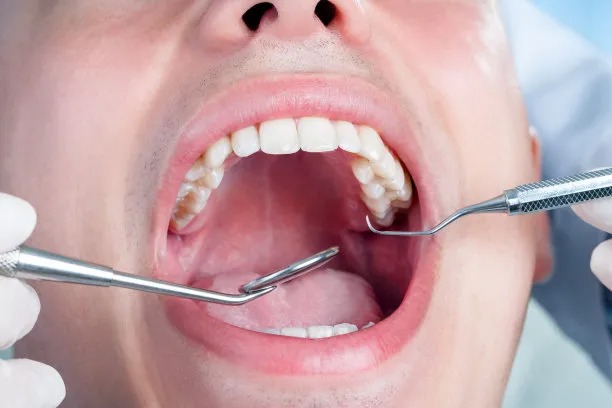Summary: Dental implant surgery is a significant decision for individuals seeking to restore their smiles and dental functionality. Before undergoing this procedure, understanding essential guidelines and precautions is crucial for achieving optimal results. From selecting the right dentist to preparing mentally and physically for the surgery, this article outlines key considerations to ensure you are well-prepared. Furthermore, it delves into the importance of medical history reviews and aftercare protocols, providing detailed insights into how these factors contribute to the success of your dental implant journey.
1. Choosing the Right Dental Professional

The first step towards a successful dental implant surgery is selecting the right dentist or oral surgeon. A dental professional with substantial experience in implant procedures is essential. Look for credentials such as specialized training in implant dentistry and a solid track record of successful surgeries.
Its also beneficial to read patient reviews and testimonials, which can provide insight into the dentists skills and patient care. Furthermore, a consultation appointment can help you gauge their approach, communication style, and ability to address your concerns.
Finally, ensure that the dental office is equipped with modern technology, as this can significantly impact the precision and success of your procedure. A well-equipped office also suggests the dentist is committed to staying updated with the latest advancements in dental care.
2. Understanding Your Medical History
Your medical history plays a crucial role in determining the best course of action for dental implant surgery. It is vital to disclose any pre-existing health conditions, medication use, and allergies to your dentist. Conditions such as diabetes and heart disease may affect the healing process or increase the risk of complications.
Additionally, discussing your lifestyle habits, including smoking and alcohol consumption, is crucial. These factors can adversely impact the success rate of dental implants. The dentist might advise cessation of smoking or definitive lifestyle changes before proceeding with the surgery.
Finally, a complete and honest assessment of your medical condition will allow your dental team to tailor the procedure to fit your specific needs. This collaborative approach can enhance the likelihood of a successful outcome.
3. Preparing Mentally and Physically
Preparing both mentally and physically for dental implant surgery cannot be overstated. Anxiety and fear can be significant barriers that may impact the healing process and overall experience. Engage with your dentist regarding sedation options, such as local anesthesia or sedation dentistry, to alleviate any apprehensions.
Physical preparation also involves following any dietary and medication guidelines your dentist provides. For instance, you may be required to avoid certain foods and medications prior to the surgery to ensure safety and efficacy.
Furthermore, consider organizing your post-surgery arrangements, including transportation and support from family or friends. Ensuring that you have a quiet space to recover can also be vital for both mental and physical healing.
4. Importance of Aftercare Protocols
Aftercare is an essential aspect of ensuring the success of your dental implant surgery. Following the specific aftercare instructions provided by your dentist is crucial for minimizing risks and promoting healing. This includes guidelines on diet, oral hygiene, and medication adherence.
Monitoring for any signs of complications, such as excessive swelling, pain, or signs of infection, should alert you to contact your dentist immediately. Early intervention is key to resolving potential issues effectively.
Finally, attending follow-up appointments is crucial for tracking the progress of healing. Your dentist will assess the implant site, monitor for proper integration with the bone, and provide further guidance to maintain oral health and implant longevity.
Summary:
In conclusion, preparing for dental implant surgery requires careful consideration of various factors, including the choice of a qualified dental professional, a thorough understanding of your medical history, proper physical and mental preparation, and commitment to aftercare protocols. Following these guidelines significantly enhances the likelihood of a successful and satisfying outcome.
This article is compiled by Vickong Dental and the content is for reference only.
Vickong Dental
Vickong Dental is a large medical group established in Hong Kong in 2008 by professors from well-known medical universities in Guangdong and Hong Kong, as well as medical doctors from key national '985' universities (including Master's supervisors and senior professors). The chain of branches brings together expert dentists with PhDs and Master's degrees from Hong Kong and Mainland China, committed to providing high-quality dental treatment.
"Vickong Dental Practices the University Motto of 'Healing and Serving Society,' with a Stable Operation for Sixteen Years. It Has Been honored with Hong Kong Enterprise Leaders's Choice,' and is a Global Trusted Implant Center for the Nobel Implant System. Recommended by Hong Kong Metro Broadcast and Guangdong Television, it Serves Customers from Over Thirty Countries and Regions, Gaining the Trust and Favor of Citizens from the Guangdong-Hong Kong-Macau Greater Bay Area and Surrounding Cities.

Thousands of customers' unanimous praise
The most recognized and highly recommended dental service by customers in the Guangdong-Hong Kong-Macau Greater Bay Area
We Ensure You Receive Detailed Care and Attention Here
Hong Kong standards, Shenzhen prices, Your Trusted English-speaking dentists

Vickong Dental Medical-Grade Instrument Disinfection Process
Vickong Dental Medical-Grade Instrument Disinfection Process

Vickong Dental Chain: A Warm and Comfortable Environment for Treatment






Appointment Hours

Q&A
Why choose Vickong Dental?
Vickong Dental practices the university motto 「Medicine to Benefit Society」, with each branch bringing together highly qualified dentists with doctoral and master’s degrees from Hong Kong and the Mainland, and has maintained seventeen years of steady operation。Recipient of 「2024 Hong Kong Enterprise Leaders Brand」, 「2025 Hong Kong Enterprise Leaders Brand」, a Nobel Biocare Global Trusted Implant Center, and a brand recommended by Metro Radio Hong Kong and Guangdong TV。
To date, we have served customers from more than thirty countries and regions,earning exceptionally high word-of-mouth recognition and trusted recommendations from residents across the Guangdong-Hong Kong-Macao Greater Bay Area and surrounding cities
We have eight major branches in Zhuhai、Shenzhen,and a consultation and service assurance center in Hong Kong,so you can book a free consultation at any time for any questions,which is very reassuring.
If I do not accept the quotation after the CT scan, will I be charged??
No! As long as the actual treatment has not started, you will not be charged any fees.
Will there be any additional charges during the treatment process?
No, there won’t be any additional charges. Before treatment begins, we will clearly explain the treatment plan and its corresponding fees. Only after the patient agrees and signs the consent form will we proceed with the dental service.
Can I pay in Hong Kong dollars?
Yes. Vickong Dental accepts payment in Hong Kong dollars. The amount will be converted based on the exchange rate of the day, and the applicable rate will be clearly communicated to you in advance.
Can I reschedule my appointment at any time?
Yes. Please contact us via **WeChat** or **WhatsApp** as early as possible, providing your original appointment time and details, along with your preferred new date and time slot for rescheduling.













